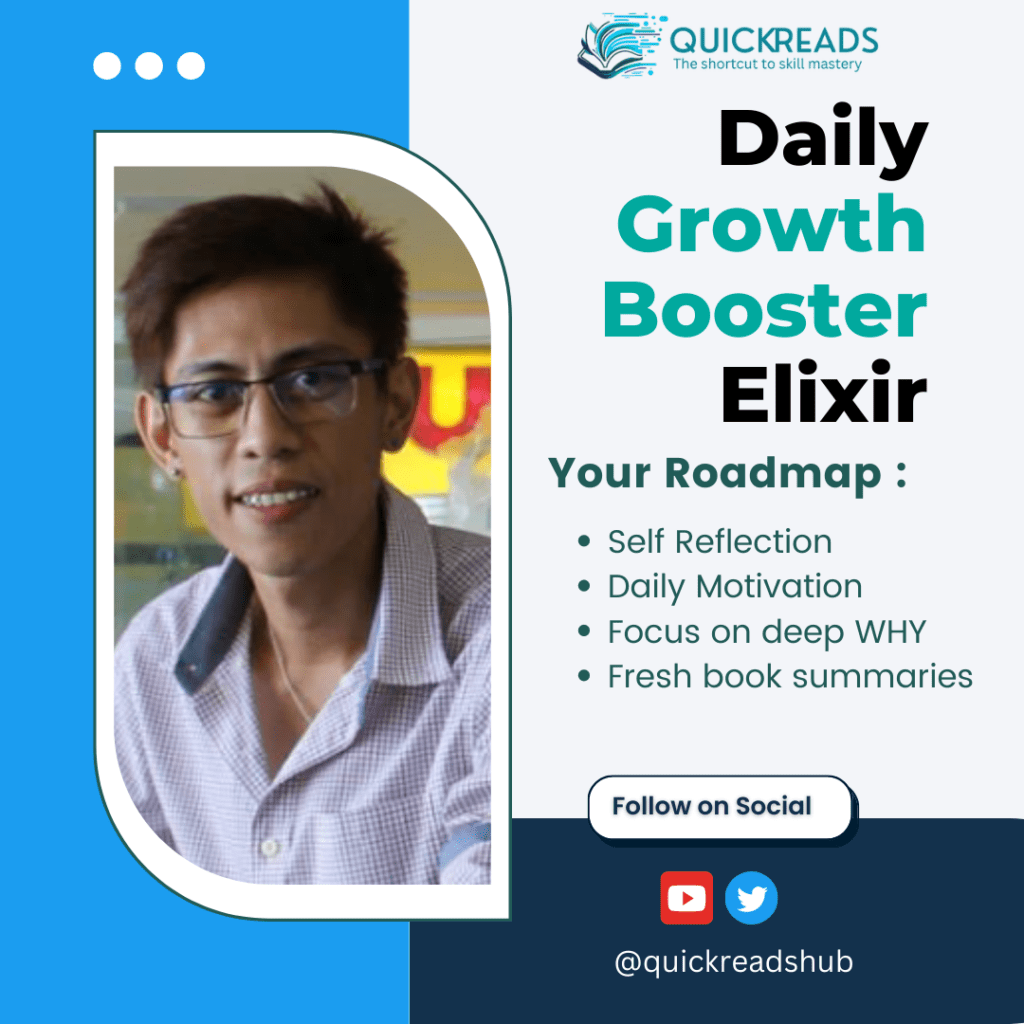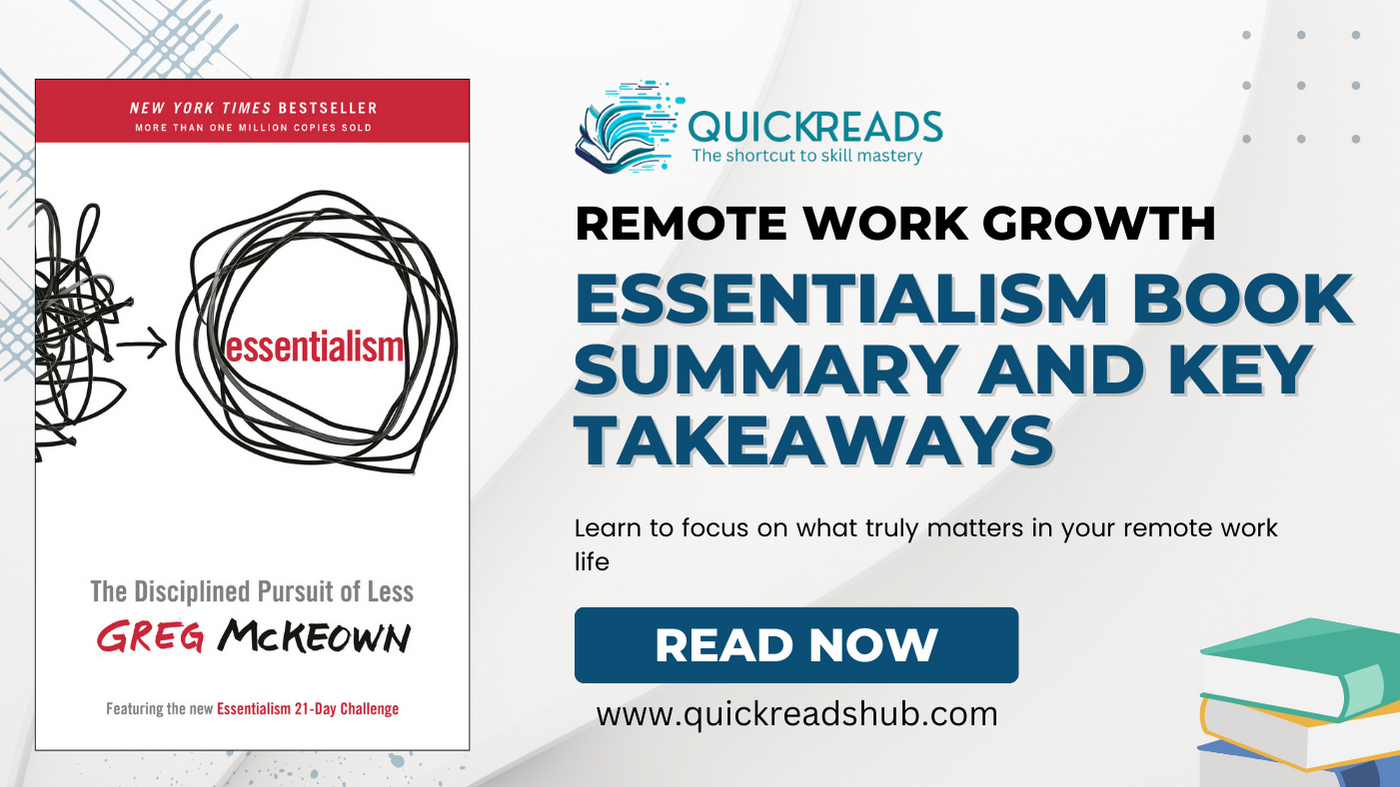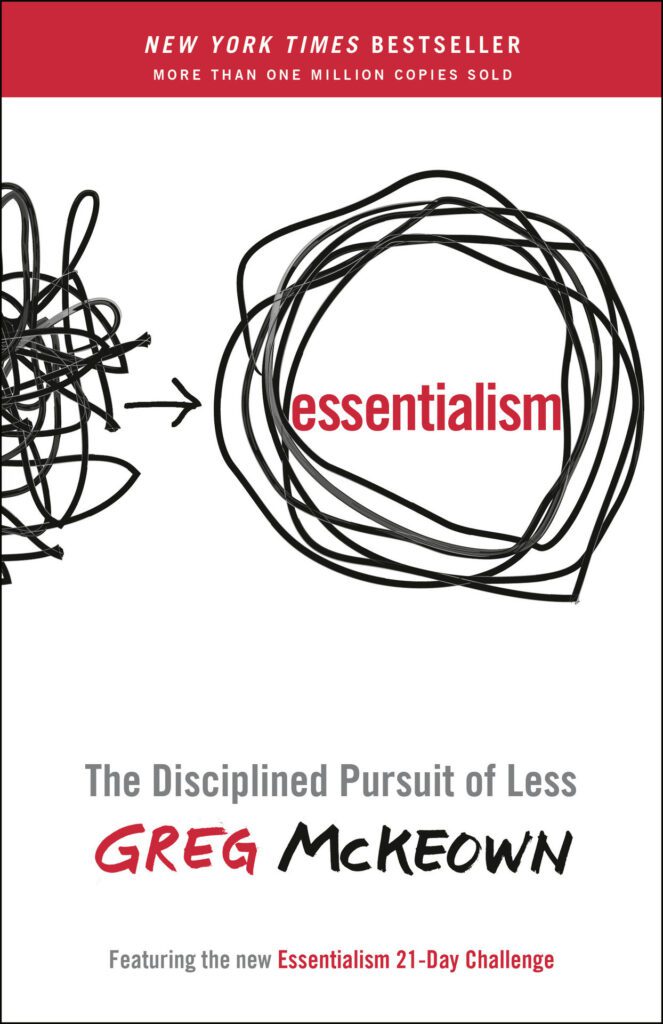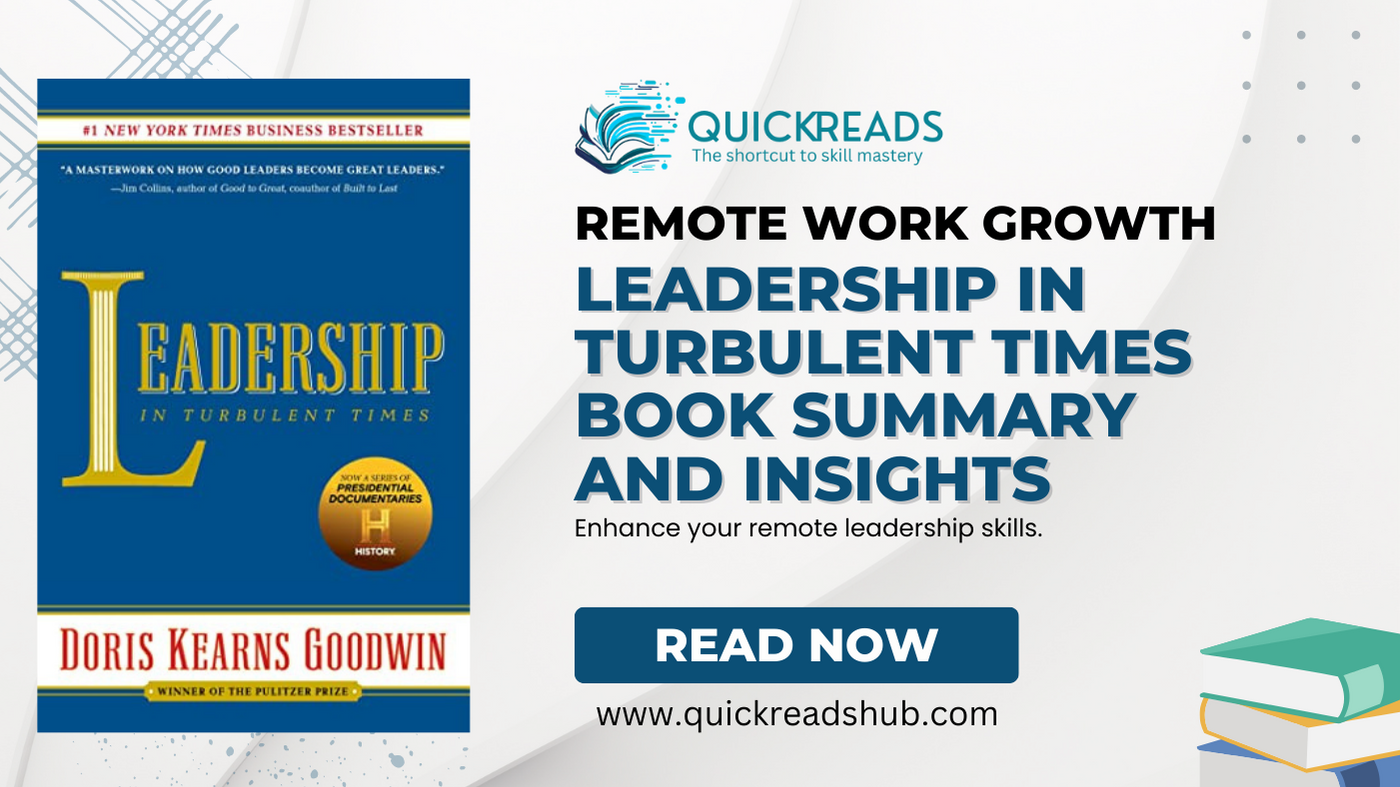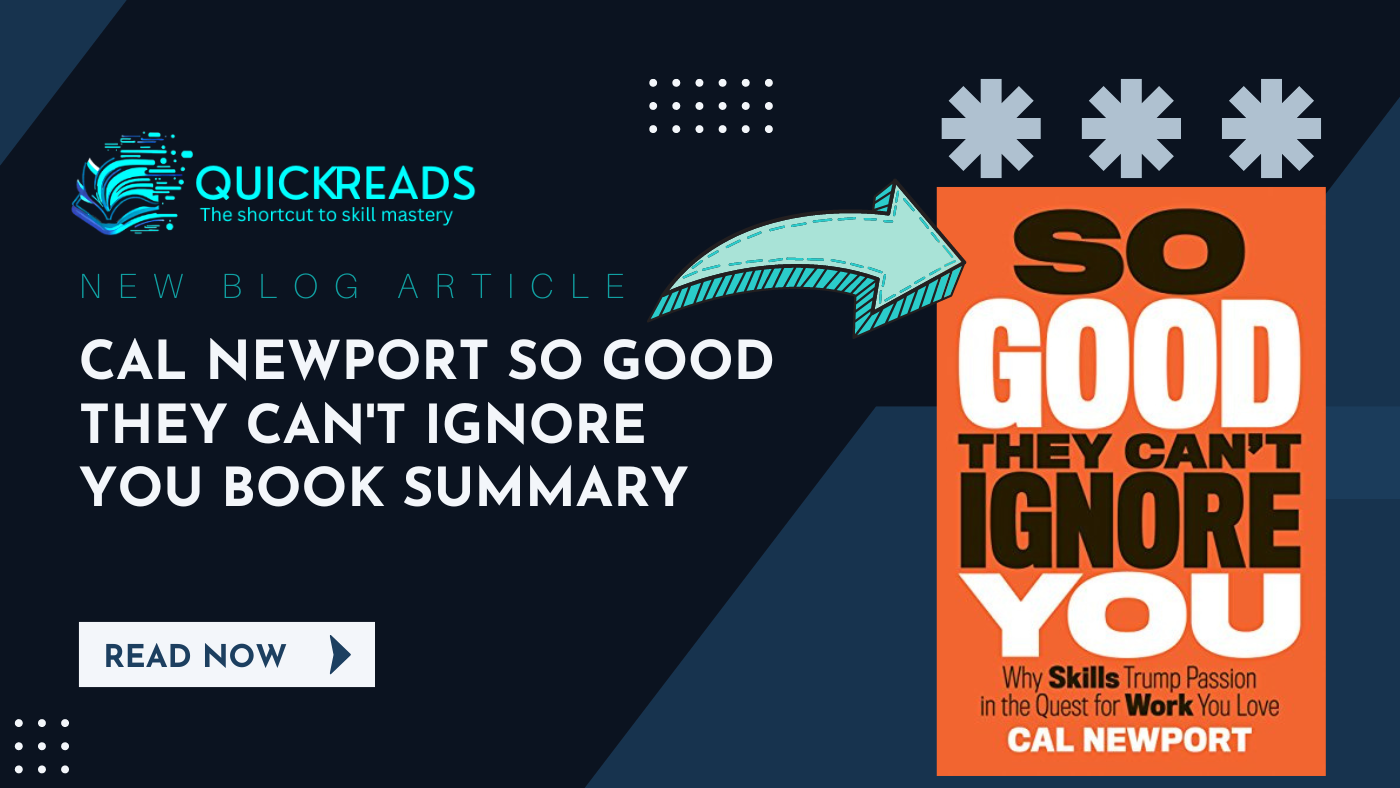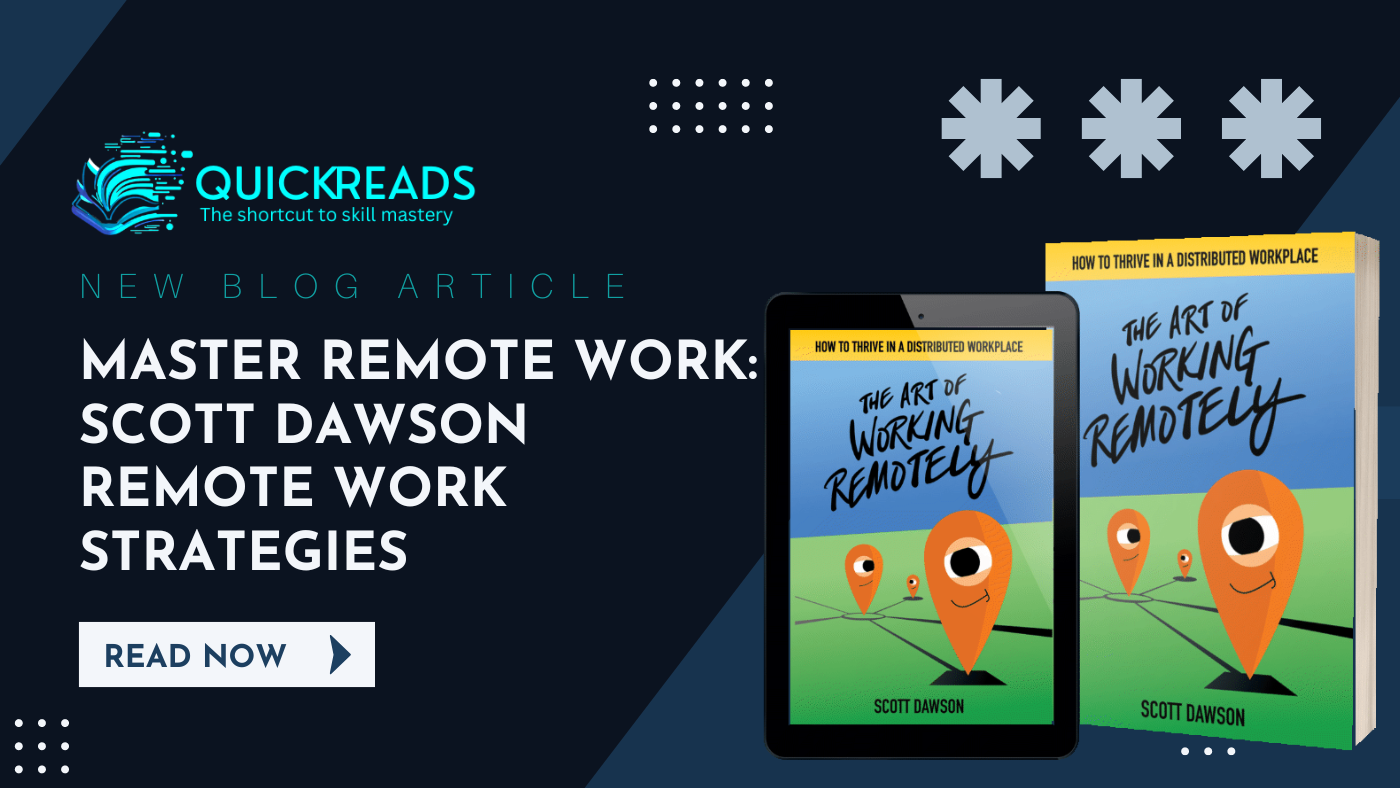Let’s dive into the world of Essentialism. In his book “Essentialism: The Disciplined Pursuit of Less,” Greg McKeown introduces us to a new way of thinking. He encourages us to shift our focus from the many to the vital few. It’s about making the wisest possible investment of your time and energy.
Now, imagine applying this concept to remote work. The digital world is filled with endless tasks, meetings, and distractions. It’s easy to feel overwhelmed and lose sight of what truly matters. That’s where Essentialism comes in. It’s not about getting more done in less time. It’s about getting the right things done. It’s about making a significant contribution instead of making a millimeter of progress in a million directions.
In the realm of remote work, Essentialism can be a game-changer. It can help you sift through the noise, focus on your most important tasks, and ultimately increase your productivity. It’s about working smarter, not harder. So, if you’re a remote worker looking to boost your productivity and make your work more meaningful, this book might just be the guide you need. Stay tuned as we delve deeper into the principles of Essentialism and how you can apply them to your remote work life.
Understanding Essentialism
Definition and Characteristics of Essentialism
Essentialism is a philosophical perspective that proposes that objects or entities have a set of attributes that are necessary to their identity, often referred to as their “essence”. These attributes are considered permanent, unalterable, and eternal, present in every possible world. The essence characterizes a substance or form and is integral to the understanding of what that object is.
Historically, Plato’s idealism held that all things have an essence—an “idea” or “form”. Aristotle similarly proposed that all objects have a substance that makes the thing what it is, and without which it would not be that kind of thing. According to Plato, a perfect circle is the ideal form of a circle, however, it cannot be physically manifested. Nevertheless, the circles we draw and observe have something in common—the ideal form.
Essentialism, in its broadest sense, is any philosophy that acknowledges the primacy of essence. Unlike existentialism, which posits “being” as the fundamental reality, essentialist ontology must be approached from a metaphysical perspective. This approach suggests that empirical knowledge is developed from the experience of a relational universe whose components and attributes are defined and measured in terms of intellectually constructed laws.
Common Misconceptions about Essentialism in Remote Work
While there may be many misconceptions about essentialism, particularly in the context of remote work, it is beyond the scope of this text to discuss them in detail due to lack of sufficient data. However, one potential misunderstanding could be that essentialism is about stripping down work to its most basic elements and doing less, which may not be entirely accurate. Essentialism isn’t just about reduction, it’s about focusing on what’s truly essential. This involves critically evaluating tasks and responsibilities to understand what’s truly fundamental to the progress and success of the work or the organization.
How Essentialism Can Enhance Productivity in Remote Work
The application of essentialism in remote work can potentially enhance productivity by focusing on the core functions and most important tasks, and outsourcing or eliminating non-essential tasks. This concept aligns with the principle of outsourcing non-core business activities, which offers cost-savings, and efficiency, and opens opportunities for growth. By identifying and concentrating on the essential tasks that contribute most to desired outcomes, remote workers can more effectively use their time and energy, leading to increased productivity.
Key Takeaways from ‘Essentialism’
“Essentialism” by Greg McKeown promotes the philosophy of “less but better.” Here are the key points summarized from the book:
- Explore: The first step in the path of essentialism is to discern the trivial many from the vital few. This requires paying attention to the bigger picture, clarifying the questions you want to ask yourself, creating time to explore life, and protecting your personal well-being.
- Eliminate: The second step involves setting extreme criteria for what you choose to do—if it isn’t a resounding “yes,” it should be a “no.” You should set clear boundaries and feel comfortable cutting losses. This step also highlights the importance of setting up and using narrow criteria and being clear about your mission.
- Execute: Finally, the book emphasizes the importance of building buffers for unexpected events, practicing early and extreme preparation, removing obstacles to progress, and focusing on small wins. An essentialist isn’t just about success but living a life full of meaning and purpose.
Be An Essentialist: 3 Powerful Parts You Need To Know as a Remote Worker:
- Explore:
- Create space: In a remote work environment, it’s easy to find your personal and professional life blending into each other. Therefore, it’s vital to create space for yourself to “escape” and explore life outside of work. This could mean taking regular breaks throughout the day to engage in activities you enjoy, or setting up a designated workspace in your home that is only used for work, helping to create a psychological boundary between work and leisure.
- Big picture focus: It’s essential to understand the bigger picture of your work. For a remote worker, this could mean understanding how your role contributes to the overall goals of the team and the company. By doing this, you can identify which tasks are truly important and which are not, helping you to prioritize effectively.
- Eliminate:
- Set extreme criteria: When you’re working remotely, you often have the flexibility to manage your own time. However, this can also lead to overcommitment. To avoid this, set extreme criteria for the tasks you choose to take on. If a task doesn’t contribute to your overall goals or doesn’t align with your skills and interests, say no to it.
- Un-commit: It’s okay to reevaluate your commitments. If you’ve taken on too much or if a task is no longer relevant or beneficial, it’s okay to step back from it. This could mean delegating a task to someone else or communicating with your team or manager about your workload.
- Execute:
- Build buffer: Things don’t always go as planned, especially in a remote work environment where you may be dealing with technological issues, interruptions from household members, or other unexpected disruptions. Build in buffers to your schedule to account for these unexpected events.
- Routine and preparation: Developing a routine can make executing tasks almost effortless. For example, you might start your day by checking and responding to emails, then move on to more challenging tasks when your concentration is at its peak, and end the day with lighter tasks. This routine can also include preparation for the next day, such as creating a to-do list or gathering necessary resources.
- Small wins: Celebrate small wins. This can help keep you motivated and focused. For instance, if you finish a task ahead of schedule or receive positive feedback, take a moment to acknowledge and celebrate this accomplishment.
Remember, the goal of essentialism is not to get more things done but to get the right things done. It’s about making the wisest possible investment of your time and energy in order to operate at your highest level of contribution.
The Power of Prioritization in Remote Work
In the realm of remote work, prioritization is a superpower. It’s the compass that guides us through the sea of tasks, meetings, and deadlines. It’s the tool that helps us focus on what’s truly important and discard what’s not. This is the essence of Essentialism, as explained by Greg McKeown in his book “Essentialism: The Disciplined Pursuit of Less”.
Prioritization in remote work is not just about managing tasks, it’s about managing energy, focus, and time. It’s about understanding that we can’t do everything and that trying to do so will only lead to burnout and decreased productivity. Instead, we should focus on doing the right things, the tasks that bring the most value to our work and align with our goals.
Let’s look at some real-world examples of successful remote workers who have implemented Essentialism in their work:
- The Freelancer: A freelance graphic designer was struggling with managing multiple clients and projects. She was always busy but felt like she wasn’t making significant progress in any of her projects. After reading “Essentialism“, she decided to implement its principles in her work. She started by identifying the tasks that were truly essential and aligned with her goals. She then eliminated the non-essential tasks and started delegating tasks that could be done by others. This allowed her to focus on her most important projects and significantly improved her productivity and work satisfaction.
- The Remote Team Leader: A team leader of a remote software development team was constantly in back-to-back meetings, leaving him with little time to do actual work. After being introduced to Essentialism, he decided to prioritize his tasks and responsibilities. He started declining meetings that were not essential, delegated tasks that could be handled by his team members, and set specific times for deep work. This not only improved his productivity but also empowered his team members as they took on more responsibilities.
- The Digital Nomad: A digital nomad was juggling work, travel, and personal life. He was constantly stressed and felt like he was not fully present in any aspect of his life. After adopting the principles of Essentialism, he started prioritizing his tasks based on their importance and urgency. He also set clear boundaries between work and personal time. This allowed him to be more focused and present in whatever he was doing, whether it was working on a project or exploring a new city.
These examples show that Essentialism is not just a concept, but a practical approach that can be implemented in our daily work. It’s about making conscious decisions about where to invest our time and energy. It’s about realizing that less can indeed be more. In the world of remote work, where distractions are plenty and boundaries are blurry, Essentialism can be the guiding principle that leads us to productivity and satisfaction.
Strategies for Remote Workers
Working remotely has become a significant part of the modern work landscape. While it offers numerous benefits such as flexibility, reduced commute time, and the ability to work from anywhere, it also presents unique challenges. This chapter will explore practical strategies for remote workers to enhance prioritization and productivity, and how to handle common challenges faced by remote workers in maintaining prioritization.
- Overcoming Technical Failures: Technical issues can be a significant challenge for remote workers. Unlike in an office setting, where an IT team is readily available, remote workers often need to resolve technical issues independently. Regular system checks by your technical team can help prevent unexpected technical failures. Additionally, learning basic troubleshooting skills can be invaluable for remote workers.
- Enhancing Communication: Effective communication is crucial in a remote work setting. The lack of in-person interaction can sometimes lead to miscommunication and feelings of disconnection from the team. To mitigate this, it’s essential to clearly define your goals and expectations during conversations and online meetings. Utilize video conferencing tools and engage in more friendly conversations with your team to improve workplace engagement.
- Navigating Different Time Zones: Working with a global team can be rewarding, but it also means dealing with different time zones. This can lead to delays in receiving feedback and reduced engagement with the team. To overcome this challenge, use tools and platforms that allow you to work productively across multiple time zones. Sharing preferred working hours and normalizing asynchronous communication can also be beneficial.
- Managing Productivity: Maintaining productivity while working remotely can be challenging, especially without the structure of a traditional office environment. To enhance productivity, develop proactive habits such as planning your tasks for the day and incorporating self-care routines. Utilizing productivity tools can also help you stay organized and focused.
- Minimizing Distractions: Working from home can come with numerous distractions, from social media to household chores. To minimize distractions, create a dedicated workspace that is free from noise and interruptions. Techniques such as the Pomodoro technique, which involves working for a set amount of time and then taking a short break, can also help improve focus.
- Maintaining Social Interaction: Remote work can sometimes lead to feelings of isolation due to the lack of in-person interaction. To combat this, be proactive in reaching out to your co-workers through calls and messages. Consider working in co-working spaces occasionally to interact with others and build meaningful connections.
- Avoiding Burnout: The overlap of work and home responsibilities can sometimes lead to stress and burnout. To prevent this, create an organized work schedule that includes regular breaks. Communicate with your employer to set up work-life boundaries and prioritize your health through regular exercise, meditation, and quality sleep.
While remote work presents unique challenges, these can be effectively managed with the right strategies and tools. By addressing these challenges proactively, remote workers can enhance their productivity, maintain a healthy work-life balance, and enjoy the benefits of remote work.
Conclusion
In our journey through the world of Essentialism, we’ve discovered the power of prioritizing and the impact it can have on our productivity, especially in the realm of remote work. We’ve learned that Essentialism isn’t about doing more things; it’s about doing the right things. It’s about making the wisest possible investment of your time and energy in order to operate at your highest point of contribution.
We’ve seen real-world examples of successful remote workers who have implemented Essentialism in their lives, showing us that it’s not just a theory, but a practical, applicable approach to work and life. We’ve discussed techniques to stay productive and prioritize efficiently, and how to deal with the typical issues of prioritization when working remotely..
As remote workers, it encouraged us to embrace and apply these insights from Essentialism. It’s not just about improving our work, but also about enhancing our overall quality of life. Remember, the essence of Essentialism is not about getting more done in less time. It’s about getting only the right things done. It’s not a time management strategy or a productivity technique. It’s a systematic discipline for discerning what is absolutely essential, then eliminating everything that is not, so we can make the highest possible contribution towards the things that really matter.
Next Steps
We invite you to share your experiences or challenges in maintaining prioritization in remote work. Your insights and experiences can serve as valuable lessons for others navigating the same path. Learn more about Essentialism by reading Greg McKeown’s book, “Essentialism: The Disciplined Pursuit of Less”.
And now, for the final act, we present to you an interesting reason to buy this book. Imagine a life where you’re not constantly stretched too thin, overworked, or busy but not productive. Visualize a life where you have the freedom to pursue your passions. This is not a distant reality, but a tangible possibility with Essentialism.
The book “Essentialism: The Disciplined Pursuit of Less” is not just a book; it’s a doorway to this possibility. It’s a guide that will equip you with the tools and strategies to make this vision a reality. So, if you’re ready to step into a life of more impact and less chaos, click on our affiliate link to purchase the book. Remember, we don’t make changes in our lives based on what we know; we change based on what we feel. And if you feel that this is the right step for you, don’t hesitate. Embrace Essentialism and step into a life of less but better.
Ready to Excel in Your Remote Career?
Swap your office attire for your favorite swimwear and dive into our Daily Growth Booster Elixir! This isn’t just another newsletter – it’s your personal guide to thriving as a remote worker. We deliver unique tips, insightful book summaries, and handpicked recommendations straight to your inbox. No jargon, no clutter, just the essence of success. Embark on your journey to personal growth today! It’s completely FREE and requires NO DIPLOMA! Join Now and start transforming your work-from-home experience!
